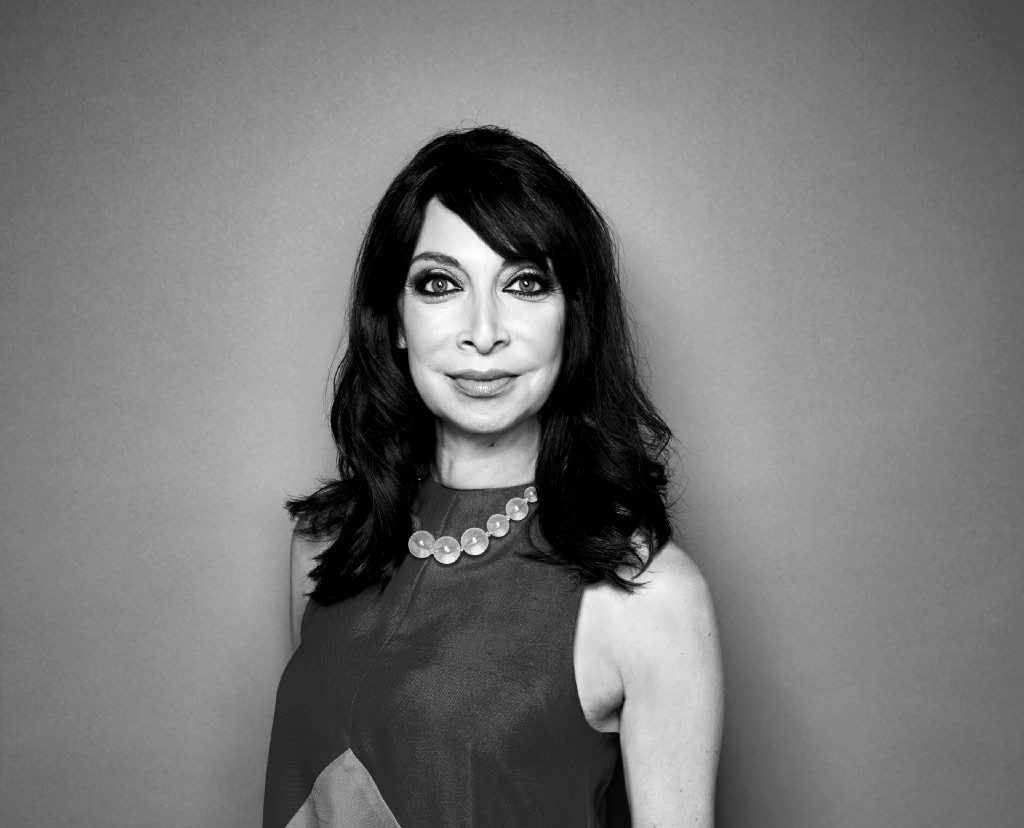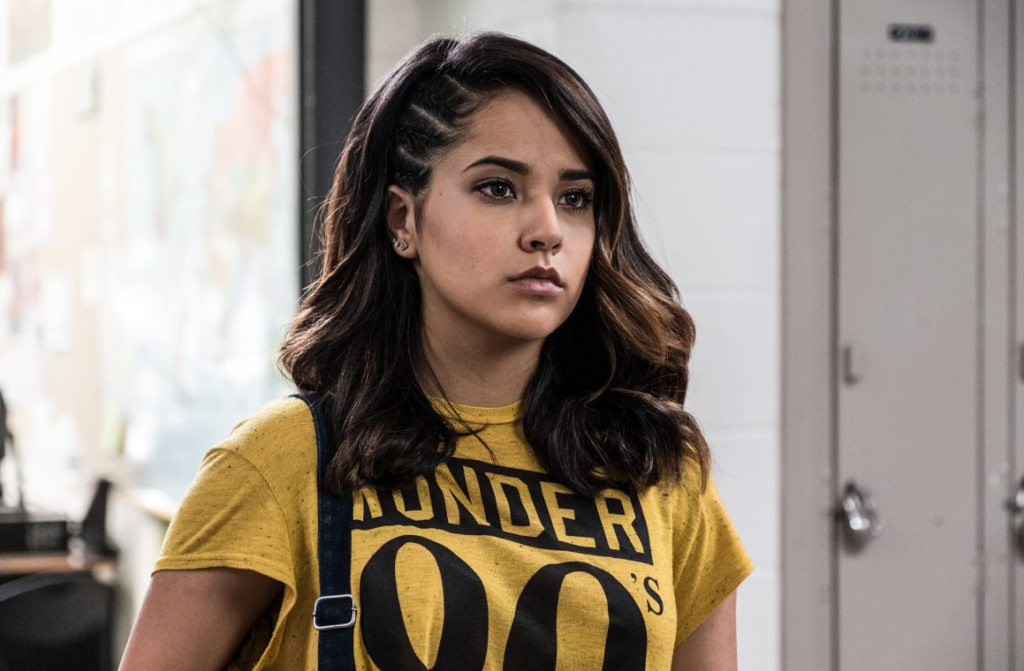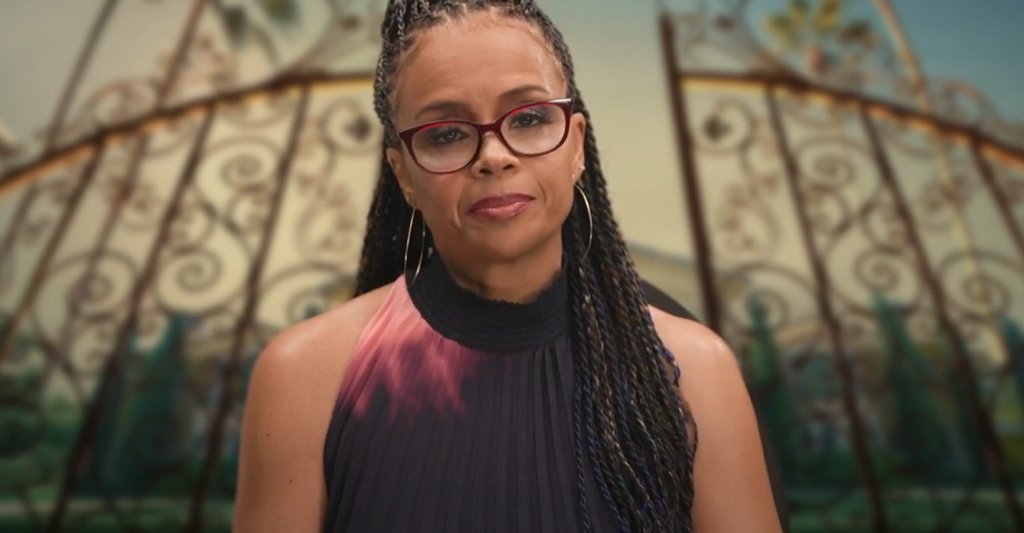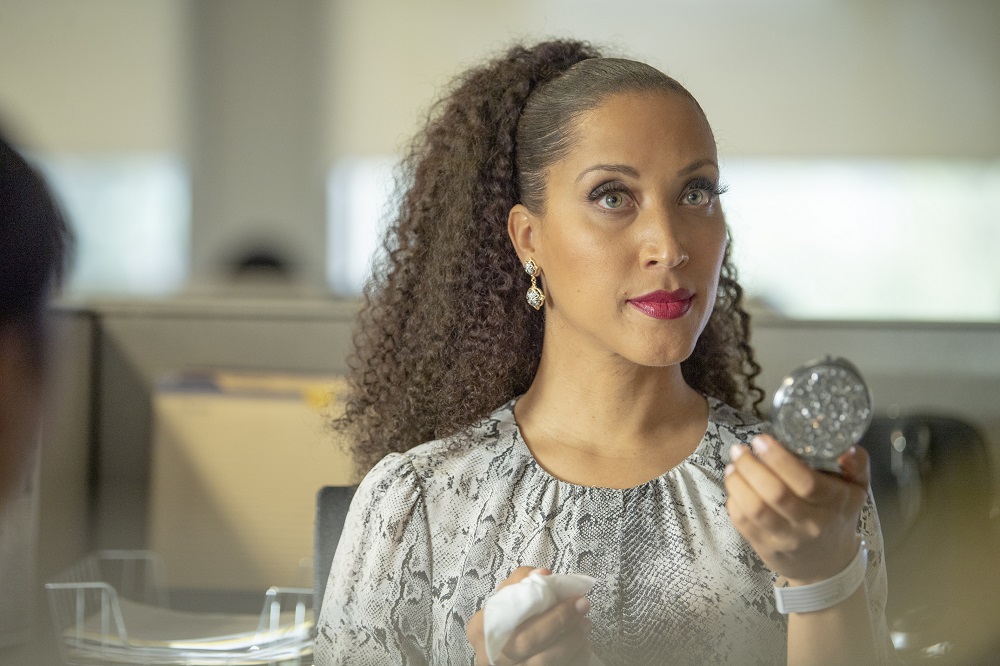As the host of TCM’s new series “Trailblazing Women,” a month-long series highlighting women’s achievements in the film industry, Illeana Douglas brings a widely varied experience to the table. You may remember her as one of the indelible faces of ’90s film (“To Die For,” “Grace of My Heart,” “Goodfellas”), but she is also a director, an author and a fierce advocate for raising awareness of women’s contributions to movie history. Women & Hollywood spoke to her about upcoming segments, pervasive Hollywood sexism and her own experiences of being short-changed in the industry because of her gender. This month on Tuesdays and Thursdays, “Trailblazing Women” focuses on female directors.
W&H: In all the interviews and research you did, was there one phrase or experience that would come up repeatedly?
ID: There were a couple of through lines, going back from 1896 to modern day. One was that, for example, while Alice Guy-Blache was out making a film [in 1896], her boss, Leon Gaumont, was writing down all the film history and making sure to edit her out of it. While Lois Weber was making films, Cecil B. DeMille and D.W. Griffith had their biographers writing everything down. I really related to that. Women are like, “Let’s do this thing!” and jump in with the joy of creativity. You’re like, “Obviously I did it.” You never quite think about not getting the credit. Another through line was, women will establish something — like in the silent film era, all these women were directing films, and once the men saw that, it was like, “Oh, we can make money through this filmmaking stuff! Let’s get all these women out!” That’s when the men formed corporations and studios. It was built on the backs of these trailblazing women who were doing it for the passion of making movies, and then they were pushed out. That was a thing I saw again and again, how their histories became submerged to the point that you can’t find them anymore.
My approach with the show was to primarily present these women’s films as great entertainment. “Fast Times at Ridgemont High,” no one remembers that’s directed by a woman. Everyone remembers Sean Penn as Spicoli, but nobody remembers Amy Heckerling directed the movie. “Wayne’s World” is part of our culture, but nobody remembers it was directed by a woman. Ditto the first “Twilight” movie.
My approach was also to point out to AFI [American Film Institute] to consider putting female movies on its lists. AFI’s top 100 film list doesn’t include a single one directed by a woman. Let’s just start there. We’ve got Billy Wilder, Howard Hawkes — what about Dorothy Arzner, simply for surviving in the studio system in the ‘30s? She directed one of the movies we’re showing, called “Dance, Girl, Dance.” It’s really interesting and no one’s heard of it. It stars Lucille Ball and Maureen O’Hara, but it’s a role reversal — the lead is Lucille Ball, who’s the tough, funny, wisecracking one, and the side role is the ingénue. Today we have the opposite, where it’s always the sidekick who’s quirky. Arzner was also the first director to use what we now call a boom microphone; she attached a microphone to a fishing rod.
W&H: The African-American Independents segment includes a showing of “Selma” director Ava DuVernay’s earlier movie — can you talk about that one?
ID: “Middle of Nowhere” (DuVernay’s second feature) is fantastic. David Oyelowo gives a fantastic performance in this movie about a woman whose husband goes to prison, and she’s torn between her loyalty to her husband and Oyelowo’s character. Great film, I’d never heard of it. And it was fascinating talking to director Julie Dash. I’d never seen her film “Daughters of the Dust,” which is about slavery but takes place post-slavery, about people living on a little island off the coast of the Carolinas. The other film we discovered was the late Kathleen Collins’ “Losing Ground” from 1982, one of the first feature films written and directed by a black woman, exploring women’s sexuality and the lives of artists and scholars. It’s about a philosophy professor and her husband and their world in upstate New York. It’s like an African-American Woody Allen movie. Why have I never heard of it?
W&H: It feels like so many of these films have just been systematically ignored or buried.
ID: You have to say it’s sexism — there’s no other word for it. I have a book coming out [“I Blame Dennis Hopper”], and one of the chapters is called “A Sensitive Female Picture.” When I wanted to make a movie with third-time director Allison Anders [“Grace of My Heart”], our film received $3 million and on the same day the studio greenlit another film by a second-time director who was a guy. His film got $5 million. And when I asked the studio executive why, he said, “Because your movie is a sensitive female picture that only women are going to see.” And, I mean, it’s got Matt Dillon in it! It’s got John Turturro! There were fights during filming, too. Nobody wanted Allison to depict a scene of a woman’s water breaking. That had apparently never been shown on film, and everybody thought it was going to be shocking and disgusting. We did a scene of me getting an abortion that was cut. It was only alluded to, because they thought it would be too much. So those types of battles go on.
W&H: You often hear the word “difficult” lobbied against female directors in these situations.
ID: I was behind the scenes of a movie [director and producer] Joyce Chopra was involved in, and she was fired. The producer was Sydney Pollack, and he fired her and brought on a guy and blamed it on the two lead actors not being “comfortable” with her. I heard that a lot. I’m not sure it’s true; I think sometimes it’s the executives who are uncomfortable. Because often when you have a woman director, she’s strong with her opinions and about the kind of movie she wants to make. And if they’re looking at footage and unhappy with it, they decide the woman isn’t going to play ball. But all of this is just sexism.
Plus we’ve started thinking of movies as primarily for males 18–35, which is a myth. We all know it’s a myth, and yet we keep making movies that way. I keep saying, I’d like to see Kathryn Bigelow do “Mission: Impossible.” Let’s have women directing some of these action films.
Another thing I heard frequently from female directors was that even though their first film was successful, they couldn’t get their second film off the ground. And I think it really shocked them, and they had to scramble. You listen to the DVD commentary of Martha Coolidge for “Valley Girl,” where she put Nicolas Cage on the map, and she had a really tough time making her next film. She developed “Some Kind of Wonderful” and four days before they went into production, John Hughes fired her. After she had put the whole cast together. I heard over and over how women had created something and were not asked back to do the sequel. They set something up and were fired. I heard that again and again.
I know for myself, when I did my web series “Easy to Assemble,” I was a pioneer of doing branded web stuff — it was like 2005. There were no celebrities doing web series, and I got Jeff Goldblum and Keanu Reeves, all these people. I thought, “The directing gigs are just gonna come in.” Nope. I won a lot of awards. But not one opportunity came in to direct, and I was surprised. Because it was like, well, clearly I’ve demonstrated that I wrote it and produced it and I’m starring in it. And those opportunities didn’t come. I also think another issue becomes, with agents, nobody wants to represent you as a female writer. I’m a writer and I was told it would be a lot easier if I partnered up with somebody. I mean, look at J.K. Rowling. I don’t think it’s accidental that she took away her female name. And that’s really sad.
W&H: What did you make of the recent Meryl Streep comment about being a humanist rather than a feminist?
ID: I think there still is this crazy stigma about [the term]. And you don’t have somebody like Gloria Steinem anymore, really leading the way. I was brought up by a single mom; my grandmother, [actress and politician] Helen Gahagan Douglas, was on the cover of Ms. Magazine. I actually met Gloria Steinem when I was a child. So I had to be a feminist, that’s how I was trained! I grew up in the late ’70s, being taken to the movies by my mom. I saw movies by Lina Wertmuller, Agnes Varda and films like “My Brilliant Career” and “Desperately Seeking Susan.” I was just going to see movies routinely that were directed by women. And then when I started working in the ’90s, I worked with Allison Anders and Nancy Savoca and Melanie Mayron. It didn’t seem that unusual. And what I’ve noticed over my own career as a director and actress, is that it started to narrow. And now it’s nonexistent. Not so much in television, but in terms of feature film, female directors cannot get their movies made.
I think we as women got too complacent. I thought, well, Nora Ephron and Barbra Streisand and all these people are directing and the next generation, like me, would be ushered in. And that’s not the way it happened. It was like, “No, we’ve had enough ‘Sleepless in Seattle,’ we’re not going to have any more female directors.”
W&H: And yet these days there’s a lot of talk about how degraded the rom-com is. We still look back on those female-directed movies of the ’80s and ’90s as the best examples of it.
ID: Totally. Is there a backlash because “Sleepless” was so successful, and then a bunch of men tried to do the same movie and it wasn’t as good? There’s only one Nora Ephron. Her point of view and voice is really missed. But what you find is the culture only wants one woman at a time. We can have one Nora Ephron, one Tina Fey.
W&H: Amy Schumer is our one right now, I think.
ID: And that’s what I find frustrating, because there are all these other funny women out there and the backlash becomes, they don’t get any media attention because we have our one funny, quirky woman. And then the question I pose is, will she be so funny when she’s 40? They’ll get rid of her and want someone new and fresh. The next series is going to focus on ageism, which goes along with sexism. God bless Meryl Streep and Susan Sarandon, but I think of the hundreds of other actresses in their 60s that are doing web series for $100 a day and can barely pay their insurance. It’s unconscionable.
And what’s happening now with women finally speaking out is, when it becomes financial, you’re like, “I don’t care anymore.” Women used to think, “If I’m really nice, I’ll get a seat at the table. I’ll get to direct.” And it hasn’t happened. It’s been narrowing, to where we’re going to become extinct. So now people are talking about it.
But I still think, as a society, for whatever reason, it makes us uncomfortable to give women credit for anything. Maybe that’s a power struggle, I don’t know. But the public should ask those questions, and put pressure on the culture to make some of those changes. They’re questions “Trailblazing Women” is asking.







